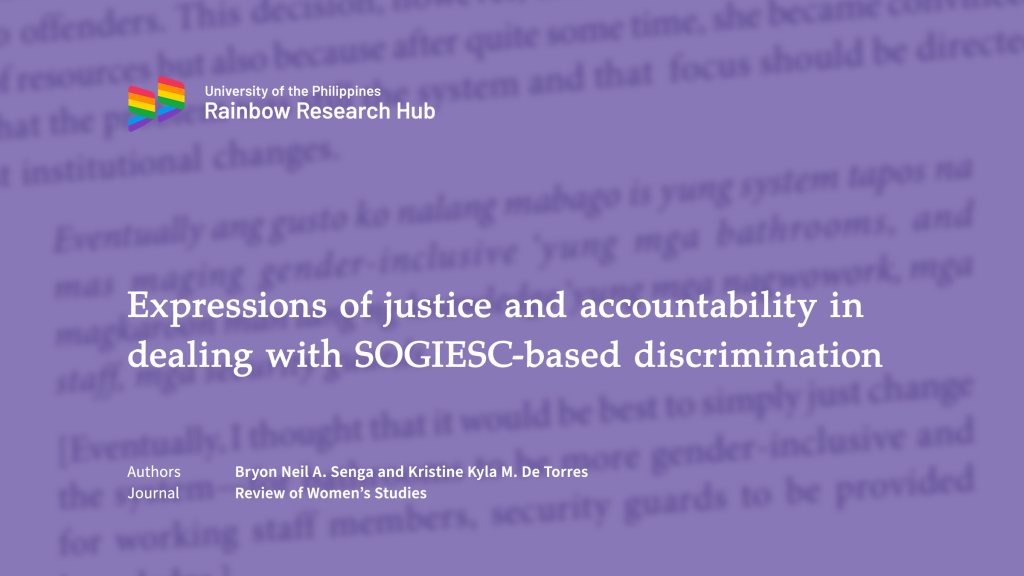
Essence
In this article, Bryon and Kristine analyzed how victims of discrimination based on sexual orientation, gender identity and expression, and sex characteristics in the University of the Philippines Diliman express their notions of justice and accountability.
The current study seeks to understand a sensitive topic among LGBTQI students—their experiences of SOGIESC-based discrimination in their university involving university offices, professors, staff, and other employees.
Authors: Bryon Neil A. Senga, Kristine Kyla M. De Torres
Journal: Review of Women’s Studies
Citation: Senga, B. N. A., & De Torres, K. K. M. (2021). Expressions of justice and accountability in dealing with SOGIESC-based discrimination. Review of Women’s Studies, 31(2), 29–58.
Explore
Express
- What was the study’s objective?
- What research question/s did the study aim to answer?
- What framework/s did the study use? Explain it briefly.
- What was/were the study’s data collection method/s?
- What was/were the study’s data analysis method/s?
- How did the study take into account its unique population of interest (that is, LGBTQI students) into the research process?
- How did the study take into account the topic’s sensitivity (experiences of SOGIESC-based discrimination) into the research process?
- What are the study’s design/methodological strengths?
- What are the study’s design/methodological weaknesses or points of improvement?
Engage
[Individual/group activity]
Answer the following questions:
- Why do you think the study’s researchers underwent SOGIESC-sensitivity workshops?
- Notably, the current study’s researchers do not assign pseudonyms or use identifiers, such as age and gender, other than to give context to experiences of transgender students. This goes against the usual practice of qualitative researchers. Why do you think the study’s researchers did that?
- Why are organizational networks and rapport-building between researchers and participants important in LGBTQI research? How are the two related as exemplified in the current study?
[Group activity]
The study uses a sociological perspective to analyze LGBTQI students’ experiences of SOGIESC-based discrimination in a Philippine university. Design a study on the same topic—LGBTQI student experiences of SOGIESC-based discrimination—specific to your own field of study and your educational institution. Include relevant concepts, frameworks, and theories, possible measures, data collection, and data analysis methods, and your rationale for including them. Also take into account your population of interest and the topic’s sensitivity when designing your study.
